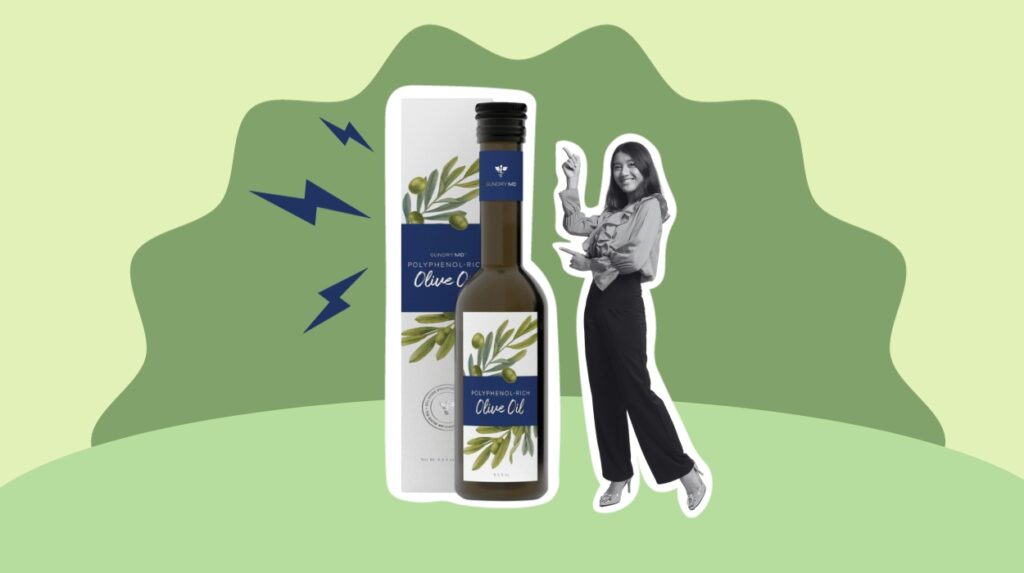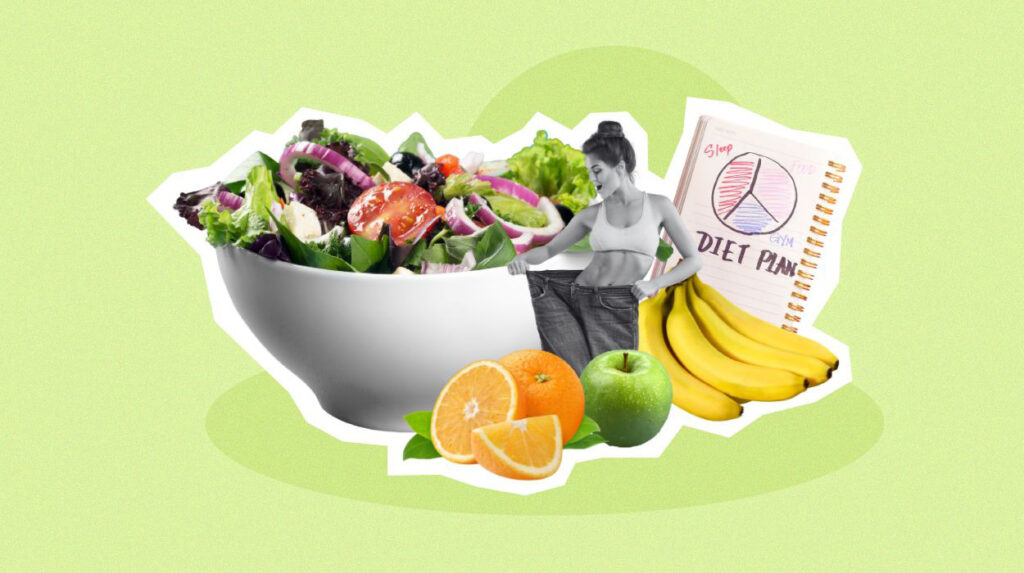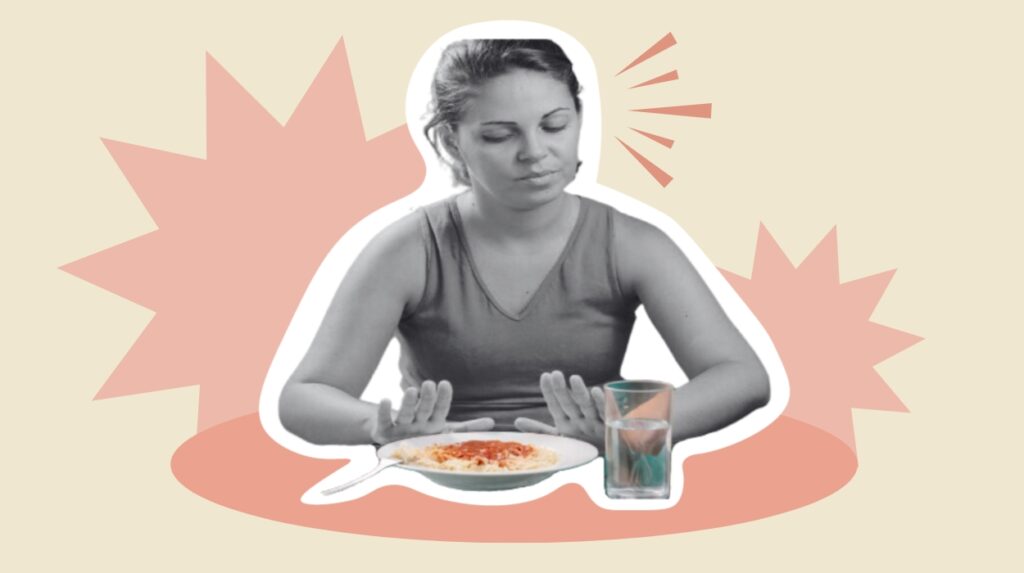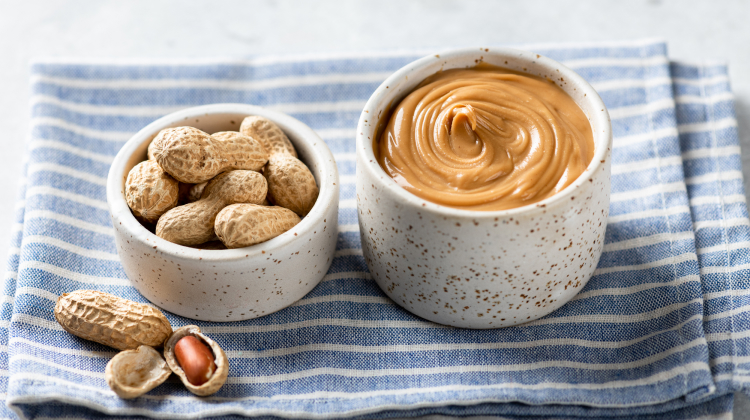
The gallbladder is a tiny organ found just below the liver. This small organ is responsible for storing bile released by the liver, which then slowly moves into the small intestines to aid in digestion.
If you have gallstones in your gallbladder, then your doctor may recommend gallbladder removal surgery (cholecystectomy). Gallstones are hardened deposits of bile in the gallbladder that can cause pain or block digestion.
Once the gallbladder is removed, the bile is then able to flow directly into the small intestines and is no longer backed up in the gallbladder. Bile helps to digest fatty food, and your liver will continue to produce bile even after post-gallbladder removal surgery.
Gallbladder removal typically results in fluctuations in your body weight[1]. However, with a few simple diet and lifestyle changes,, the body adjusts to the loss of the gallbladder and you will be able to maintain healthy body weight for the long term.
The present article sheds light on the reasons for weight fluctuations after gallbladder removal and reveals diet recommendations to maintain healthy body weight.
How To Lose Weight After Gallbladder Removal
If you’ve had your gallbladder surgery, there are some changes you need to follow in your lifestyle and eating patterns. There is often an immediate initial weight loss after the surgery due to restrictions in eating. However, after only a few weeks, it’s easy to start gaining weight due to certain changes in indigestion.
In order to know how to lose weight after gallbladder removal, it’s helpful to first understand why there are weight fluctuations after the surgery in the first place.
Causes Of Weight Loss After Gallbladder Removal Surgery
Weight loss is an often immediate side-effect of gallbladder removal surgery. The reasons for this weight loss post-gallbladder surgery are:
Eliminating Fatty Foods
Once the gallbladder is removed, the body finds it difficult to digest fatty foods for a few weeks. Your surgeon recommends eating a low-fat diet until your body adjusts to gallbladder removal and is better able to digest high-fat foods. Fatty foods contain a lot of calories, so eliminating them from your diet automatically lowers your calorie intake.
Eating a Bland Diet
Greasy, spicy, and overly seasoned convenience foods can result in gastrointestinal upset post-gallbladder removal surgery. This encourages you to shy away from these foods until you’re fully recovered. Bland food is often lower in calories and may encourage weight loss if they’re not as appealing.
Selecting Smaller Portions
After surgery, the doctor advises eating smaller meals more frequently, as the body may not be able to tolerate bigger meals in one sitting. Smaller, more frequent meals can help keep your blood glucose steady, and curb hunger that often occurs when you go too long without eating. This can prevent weight gain.
Recovering
After surgery, you may experience discomfort, post-surgical pain, as well as side effects like gas, bloating -all of which can impact your appetite.
Diarrhea
Another potential side effect of cholecystectomy is diarrhea. The reason for diarrhea post-surgery is that the intestines now contain a higher amount of bile acids that it can’t necessarily handle – after the bile reservoir (gallbladder) is removed. As a result, fewer calories may be absorbed, which could result in temporary weight loss.
Causes Of Weight Gain After Gallbladder Removal
Although weight loss is an immediate effect of cholecystectomy, you may ultimately put on weight[2] in the long term.
Weight gain after the surgery[3] happens because of your modified digestive system. Also, the body needs some time to recover and adjust to this. A low-fat diet and some changes in lifestyle could be helpful in maintaining a healthy weight.
Weight gain post-surgery occurs due to the following reasons.
Altered Metabolism
After the gallbladder removal, digestion is altered, and the body needs some to adjust to this. . The liver continues to produce bile, which drips continuously into the intestines instead of being stored.
That is why the body may not be able to digest fats effectively and productively. The calories from the meals you’re consuming may end up not being fully digested properly, and end up being stored as body fat.
Inflammation
After surgery, some individuals could experience inflammation. This post-surgery inflammation alters hormone levels and disrupts weight regulation[4].
Inflammation and a high Body Mass Index (BMI) can lead to insulin resistance and fat build-up[5] in the liver, which can result in weight gain.
Diet Plan After Surgery
After gallbladder surgery, the immediate effect may be weight loss, as it is considered one of the initial side effects of cholecystectomy. However, once the body adjusts to the new changes, one could experience a reverse effect- weight gain in the long run.
These fluctuations in weight could impact your overall health. Health experts suggest maintaining healthy body weight and lifestyle habits.. This includes a nutritious and balanced diet plan and a daily workout as advised by your doctor.
First, it is important to understand that there is no specific diet following gallbladder removal surgery (cholecystectomy). However, following certain guidelines promotes faster healing, helps maintain a healthy weight, and reduces episodes of diarrhea.
Some of the most effective methods to lose weight after cholecystectomy are discussed below.
There is no difference in the methods to lose weight for pre and post-gallbladder surgery. A balanced diet, exercise, and quality sleep aids in maintaining a healthy body weight.
Specific tips that may help alleviate problems post gallbladder surgery include:
Going Easy On High-Fat Foods
High-fat foods post-gallbladder surgery can cause gas, bloating, or diarrhea in some people. This is partly because, without the gallbladder, bile finds its way straight into the small intestines and acts as a laxative. And the more fat you eat, the more bile that will enter the intestines in an attempt to break it down.
Eating Smaller, More Frequent Meals
Try to eat smaller meals (every 2 – 3 hours) so that your body gets the chance to digest calories and nutrients without overworking your liver.
Eat snacks between your smaller meals. This ensures a better mix with available bile or food-to-bile ratio throughout your day.
Drinking Plenty of Liquids
Diarrhea is a common side-effect of post- gallbladder surgery. It’s important to remain hydrated right after surgery in order to prevent draining your body of necessary fluids, minerals, and minerals.
Foods to Eat
Here are the types of foods to eat after gallbladder surgery.
Remember to give your body some time to heal before you slowly begin introducing larger meals and solid foods back into your diet.
Healthy foods one should eat post gallbladder removal include:
- Vegetables
- Whole grains
- Fruits
- Lean protein like nuts and seeds, legumes, fish, lean beef & pork, poultry, and fat-free dairy
Foods To Avoid
To minimize the risk of side effects after gallbladder surgery, avoiding certain foods can help. These foods include high-fat foods, fried foods, convenience foods, vegetable oils, and greasy foods.
These foods are harder to digest and can require the stomach and intestines to have to work harder. As a result, these foods could cause abdominal pain and even worsen diarrhea.
Foods that should be avoided post gallbladder removal include:
- Cakes
- Fried foods, (fritters, potato chips, and potato chips)
- Hash browns
- Onion rings
- High-fat meats – ground beef, bologna, bacon, sausage, and ribs
- High-fat dairy products – cheese, whole milk, butter, and sour cream
- Creamy sauces and soups
- Pizza
- Chocolates
- Meat gravies
- Vegetable oils – Canola oil, coconut oil, corn oil, soybean oil, sunflower oil, safflower oil
- Foods made with lard or butter
- The skin of chicken or turkey
Gas-producing foods are also a cause of discomfort. You should avoid them for a few weeks post-gallbladder surgery. These foods include:
- Cabbage
- Broccoli
- Seeds
- Nuts
- Whole-grain cereals and bread
- Legumes
- Brussels sprouts
How Long to Follow A Diet Plan Post-Gallbladder Surgery
Anyone who has undergone cholecystectomy should follow a low-fat diet for at least a month post-surgery.
However, it’s not necessary to adhere to a strict low-fat diet throughout your entire life.
A low-fat diet for a month post-surgery is the most critical as it ensures an improvement in bowel function, digestive system, as well as heart, kidney, and liver function.
After one month, you can slowly add in more fats, as tolerated. Keep a journal of your symptoms so you can identify if any high-fat foods are causing discomfort.
Over time, many people are able to return to the same diet they had prior to the surgery, while still keeping fat intake in check.,
Other Ways To Maintain a Healthy Weight
Other lifestyle habits can help you to maintain weight after gall-bladder surgery, which is discussed below.
Implement A Daily Workout
Exercise is as important as a nutritious diet for maintaining a healthy weight. Immediately after surgery, you should not engage in highly strenuous activities right away. You should begin with moderate exercises, such as brisk walking, and gradually increase exercise intensity after 4 weeks of surgery.
Increase Fiber Consumption
Diarrhea is one of the most common side effects post-gallbladder surgery. This can result in unintentional weight loss and nutrient deficiencies. To reduce diarrhea, increase your fiber consumption. A fiber-rich diet also normalizes your bowel movements.
Maintain A Food Journal
Monitor your symptoms until your digestive system adjusts after surgery. Keep a log of what you are eating and your symptoms. This will help you to identify a pattern between certain foods and whether they trigger diarrhea.
Keep track in a food journal of which foods are making your digestive system upset, which can allow your body to recover sooner. Once you recover, you can slowly reintroduce these foods into your diet, one at a time to assure you tolerate them.
Consult A Registered Dietitian
Consulting a dietitian shortly after gallbladder surgery can help address weight fluctuations sooner. Plus, research[6] has shown that dietary consultation services aid in meeting weight loss goals.
A dietitian can also provide you with a written post-surgery diet plan and even recommend an exercise plan.
Conclusion
The gallbladder is an important organ responsible for storing bile for digestion.
After cholecystectomy, the body continues to produce bile which finds its way directly into the digestive system. This modification in the process of food digestion triggers fluctuations in body weight.
You will usually initially weigh less post-gallbladder removal surgery, but may gain weight in the long run. In order to prevent this from happening, you need to make some changes in your diet and lifestyle habits.
A healthy reduced-fat diet, smaller portions, and regular exercise will help you maintain a healthy weight as well as minimize the risk of side effects or complications.
+ 6 Sources
Tnhealth has strict sourcing guidelines and relies on peer-reviewed studies, academic research institutions, and medical associations. We work mostly with peer-reviewed studies to ensure accurate information. We avoid using tertiary references. You can learn more about how we ensure our content is accurate and current by reading our editorial policy.
- Chen, Y., Wu, S. and Tian, Y. (2017). Cholecystectomy as a risk factor of metabolic syndrome: from epidemiologic clues to biochemical mechanisms. Laboratory Investigation, [online] 98(1), pp.7–14. Available at: https://www.nature.com/articles/labinvest201795 [Accessed 1 Dec. 2021].
- Ali, R., Cahill, R. and Watson, R. (2004). Weight gain after laparoscopic cholecystectomy. Irish Journal of Medical Science, [online] 173(1), pp.9–12. Available at: https://pubmed.ncbi.nlm.nih.gov/15732228/ [Accessed 1 Dec. 2021].
- Yazdankhah Kenary, A., Yaghoobi Notash, A., Nazari, M., Yaghoobi Notash, A., Borjian, A., Afshin, N., Khashayar, P., Ahmadi Amoli, H. and Morteza, A. (2012). Measuring the rate of weight gain and the influential role of diet in patients undergoing elective laparoscopic cholecystectomy: a 6-month follow-up study. International Journal of Food Sciences and Nutrition, [online] 63(6), pp.645–648. Available at: https://pubmed.ncbi.nlm.nih.gov/22229881/ [Accessed 1 Dec. 2021].
- Tuomisto, K., Jousilahti, P., Havulinna, A.S., Borodulin, K., Männistö, S. and Salomaa, V. (2019). Role of inflammation markers in the prediction of weight gain and development of obesity in adults – A prospective study. Metabolism Open, [online] 3, p.100016. Available at: https://pubmed.ncbi.nlm.nih.gov/32812925/ [Accessed 1 Dec. 2021].
- Hardy, O.T., Czech, M.P. and Corvera, S. (2012). What causes the insulin resistance underlying obesity? Current Opinion in Endocrinology, Diabetes & Obesity, [online] 19(2), pp.81–87. Available at: https://www.ncbi.nlm.nih.gov/pmc/articles/PMC4038351/ [Accessed 1 Dec. 2021].
- Williams, L., Barnes, K., Ball, L., Ross, L., Sladdin, I. and Mitchell, L. (2019). How Effective Are Dietitians in Weight Management? A Systematic Review and Meta-Analysis of Randomized Controlled Trials. Healthcare, [online] 7(1), p.20. Available at: https://www.ncbi.nlm.nih.gov/pmc/articles/PMC6473916/ [Accessed 1 Dec. 2021].







 By
By 


 By
By 
 By
By